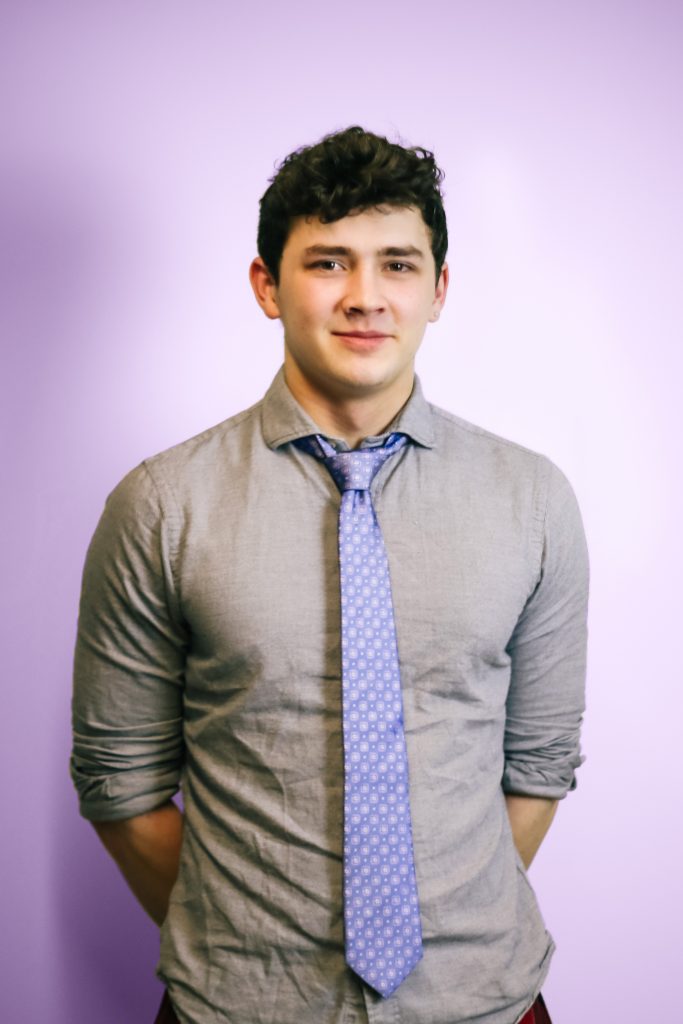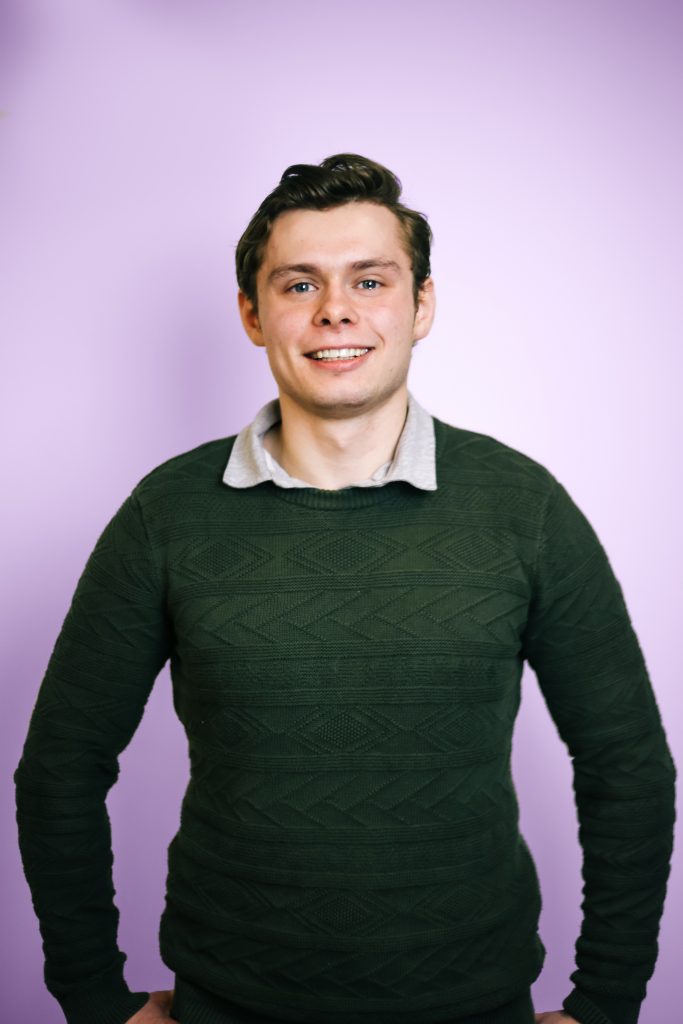
SU election supplement 2019: president
It’s that time of year again. Posters are plastering the walls, self-important student politicians are interrupting you on your way to class and there’s a guy standing in the front of your economics lecture dressed like Woody from Toy Story. It feels like the first snow of winter.
We love the Students’ Union election, which is one of the reasons why we make this supplement that you’re currently reading. Just like how all these folks are passionate about serving the student body and bringing change to campus — or getting that sweet resumé line — we’re passionate about informing students about who’s running, what they want to do if they’re elected and how likely it is that they’ll actually get those things done.
On Family Day weekend, we compiled a panel of our staff, cleaned the office, put on some nice clothes for once and interviewed (almost) every executive and Board of Governor representative candidate in this year’s SU election. Each interview follows the same format: We give each candidate up to five minutes to pitch their platform, then spend 10 minutes asking them questions. After that, we write up these little profiles to help inform students about the crowd of candidates.
There’s a number of pressing issues at the forefront of this year’s election, but the biggest theme is change. Upcoming provincial and federal elections could mean significant political shake-ups both in Alberta and throughout Canada. Plus, new University of Calgary president Ed McCauley is settling into his job. If there’s any time to push for change external to the SU, it’s now.
Beyond that, issues surrounding Open Educational Resources, Bermuda Shorts Day, MacHall redevelopment, policy reform, long-term financial stability for the SU, mental health and sexual violence are all central to one or more of the contested positions in this election. These are things that affect all students and SU elections have a significant impact on how those issues are handled. It’s your electoral duty to elect competent officials to represent you. Take that responsibility seriously.
In addition to the elected positions, this year also has a referendum for increasing the SU Volunteer Services fee from $0.75 to $1.50 for full-time students per semester. You can read our thoughts about that in our editorial at the front of this supplement. We’ll also have news coverage of the referendum throughout the campaign period online at thegauntlet.ca.
Don’t just read our candidate profiles and endorsements. Read the candidates’ submitted platforms on the SU website, attend some forums — or the Gauntlet’s presidential debate, taking place Feb. 28 at 2 p.m. in
MacHall’s Cassio A/B — and ask candidates questions yourself.
And make sure to vote through your myUofC student centre from March 5–7, ya turkeys.
President
The president is the leader of the Students’ Union. They have the most flexible portfolio, but are generally in charge of setting the direction of the organization. They also maintain official relations with the university, oversee the work of Students’ Legislative Council and vote on the Board of Governors. Look for an assured, pragmatic candidate who is aware of the challenges facing the SU.
Harrison Montgomery

Harrison Montgomery is a well-intentioned but inexperienced presidential candidate, having held no previous Students’ Union role.
When asked why he didn’t run for a faculty representative or vice-presidential executive position and work his way up the ladder, he admitted that he has no experience in these types of roles. Montgomery said that he sees himself as more of a leader who relies on the people around him for their expertise. He added he is running because he would like to impact the way the SU operates, specifically the way they present funding decisions to students.
His “keystone project” involves lowering the price of food and beverages at SU-operated businesses. Montgomery fails to understand the impact this would have on SU revenues. He erroneously believes the increase in quantity would compensate for the lower prices. He also doesn’t understand the impact that rock-bottom prices would have on the several student staff who depend on SU-operated food outlets for employment.
When asked how he would preserve funding for the SU in the case of a potential government policy that makes student fees optional, Montgomery answered that he would make sure fees that go towards services like the Refugee Student Program remain mandatory. While a noble thought, it lacks an awareness of how government legislation actually works. However, Montgomery did say that he wants to increase transparency and ensure that students understand where their money goes to make sure they see value in SU programming — a formidable goal for a presidential candidate.
Montgomery is personable, friendly and has the best interests of students at heart. He has a strong desire to improve transparency at the SU and ensure that students are being well-represented in all stages of the decision-making process. He would work well with the people around him and lean on them for their expertise.
Overall, Montgomery lacks an understanding of the way the SU operates and does not have the experience necessary for the role. He should consider running again next year in a faculty representative role, as he would be a strong advocate for student concerns.
Selected Qualifications
• Manager, Sharps Farm
• Owner, microgreen distribution company
• Food service, Kilkenny Irish Pub
Renzo Pereyra

You certainly can’t fault Renzo Pereyra for his ambition. A first-year student, Pereyra says he’s gunning for the presidential position to be a voice for students. While he is in tune with problems students at the University of Calgary face, the uninspired solutions he proposes for these issues can be attributed to a lack of experience.
Pereyra’s three platform points focus on endemic issues facing the University of Calgary student experience: A lack of campus culture, expensive academic supplies and finding employment after graduation.
To improve campus culture, Pereyra wants to encourage higher attendance at Dinos games. He attributes low spectator numbers to a lack of publicity and proposes that the solution lies in more advertising by the SU. However, student engagement with the SU itself is limited, decreasing the reach of SU advertising — he points out that the U of C Confessions Instagram page boasts more followers than the SU’s. It will take more than just a Facebook post to get more fans in the stands.
Pereyra’s correctly points out that, on average, U of C students pay more for their textbooks than other major Canadian universities. Rather than just say that he’d try to lower prices at the bookstore, Pereyra proposes two more attainable solutions: advocate for better textbook rental prices and look at providing more funding to the SU’s used bookstore. However, Bound and Copied operates on a consignment basis, taking a 25-per-cent consignment fee — cheaper textbooks at the used bookstore must come with a hit either to Bound and Copied or students themselves trying to resell their textbooks.
To address student employment, Pereyra says he will advocate for more funding towards government programs like Summer Temporary Employment Program, as well as for the university to provide more research opportunities for students on campus. Though the presidential position’s purview is all-encompassing, his pitch on how he would achieve these solutions lacked the know-how we would expect from a vice-president
academic or vice-president external candidate.
When asked about the potential of SU fees becoming non-mandatory, Pereyra says he agrees with the premise and that students should not be required to pay.
It’s impressive how well Pereyra handled himself during our interview for a first-year student. A self-described “people person,” Pereyra says he doesn’t believe in fighting with administration if the interests of students and the university don’t align, rather relying on respectful dialogue.
It’s going to be a tough campaign in a field with two well-versed candidates, but Pereyra’s ambition this early in his degree is admirable. If he can get a bit more experience, which can only be gained with time in on-campus student organizations, watch out for him in the future.
Selected Qualifications:
• Communications and political science student
• High school debate team
• Passion for advocacy
Jessica Revington

With a thoughtful platform, plenty of personality and more than enough experience, Jessica Revington is a confident and capable candidate for the next Students’ Union president.
Revington’s first platform point is about engaging with students. She says she wants to meet with department clubs and large student groups in order to hear from a more representative cross-section of the student population. While getting students to give a shit is notoriously difficult, Revington’s approach could be effective.
Revington wants to focus her advocacy on deferred maintenance, per-student mental health funding, requiring student consultation for future tuition increases and pushing for more representation in student government among marginalized communities.
Revington’s one questionable platform point pertains to strengthening the SU’s financial independence. Currently, the SU collects a $32.50 levy from full-time students per semester. Revington wants to lower that number — with the potential goal of eventually eliminating it entirely — without cutting SU services.
It will be important for students’ unions to prepare for a future in which their fees may be made voluntary. The U of C SU is in a unique position to be able to generate revenue outside of their levy through their MacHall businesses. But it’s tough to imagine them not having to cut some services if they were to eliminate their fee. To Revington’s credit, it’s a bold platform point that aims to tackle a potential threat to the organization head-on, but it may not be entirely feasible.
Revington is currently the SU’s vice-president academic. She says she’s most proud of reworking the URS into a three-day event with higher student turnout and more sponsor dollars. It’s an impressive feat that makes it easy to be confident in her ability to get things done.
While it shouldn’t be the narrative that defines this presidential race, it is worth noting that if Revington won, she would be the organization’s first female president since Lauren Webber held the role in 2010–11. Eighty-six per cent of presidential candidates this decade have been men. Revington posits that this lack of diversity is cyclic, with women not feeling comfortable to run because they don’t see themselves represented.
“I’ve waited, personally, for a strong female leader to be in that position so I could someday see myself in that role,” Revington said. “I’ve waited for five years. I’m done waiting.”
There’s no question that Revington would bring a wealth of experience, confidence and some fresh ideas, all-in-all making her a strong candidate.
Selected Qualifications:
• SU vice-president academic, 2018–19
• Two-term SU nursing representative, 2016–18
• Leadership and Student Engagement mentor and peer helper, 2014–19
Quinn Stevenson

Quinn Stevenson has a fine understanding of the workings of the Students’ Union. Despite an unimaginative platform, his charisma and accomplishments during his time as an arts representative make him a serious contender for president.
Stevenson’s first major platform point focuses on infrastructure needs, mainly pertaining to MacHall. He wants to secure government and university funding to renovate student spaces according to their needs. He also wants to advocate for the university to renovate other areas on campus that aren’t under the SU’s control. Both of these points already fall under the president’s existing responsibilities and Stevenson didn’t clarify what he would do differently to accomplish these goals. However, he did recognize that a MacHall renovation likely won’t be accomplished during his term, which was a refreshing gesture of sincerity.
Another point on Stevenson’s platform includes advocating for improved food-labelling among MacHall vendors, a popular campaign promise that has failed year after year. While food labelling is always an intriguing pledge, Stevenson didn’t clarify how his advocacy efforts would differ from those in the past.
His second platform goal focuses on promoting Open Educational Resources (OERs) and examining National Survey of Student Engagement results to understand why the U of C scores so low. One intriguing aspect of Stevenson’s plan to increase OER use is pushing the university to offer incentives for professors who use them, including increasing their odds of tenure. That would definitely boost OERs into the mainstream but it’s unlikely to actually come to fruition. Both of these goals fall more under the vice-president academic’s portfolio, which Stevenson recognizes. Realizing these goals would mean working closely with that executive and ensuring their efforts are aligned.
Among Stevenson’s best platform points is his commitment to advocating for more mental health funding from governments. He said he would use this funding not for any gimmick but rather for boosting staff and infrastructure at the U of C Wellness Centre.
Most promisingly, during his time as arts representative, Stevenson helped create a program with the university to allow students facing domestic abuse or distressing circumstances to access short-term resources, like food and housing in campus residence. This is a huge accomplishment for a faculty representative and a good sign of things to come.
Overall, Stevenson was calm and well-spoken in his interview, showing thought and care for issues that affect students. While his platform could use some refining, he is a solid choice for president.
Selected Qualifications:
• SU arts representative, 2018–19
• Faculty of Arts Students’ Association representative, 2018–19
• Crafted application to create first-ever Mental Health Scholarship in Canada
